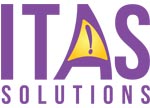
In the age of Big Data, where information flows like an unstoppable river, safeguarding data privacy has become an intricate dance between technological innovation and ethical responsibility. Let’s delve into the challenges and strategies that define this delicate balance, with a focus on consent, transparency, and the evolving landscape of data privacy in Big Data analytics.
The Challenge of Balancing Insight and Privacy
Big Data Analytics, the powerhouse behind uncovering valuable insights from colossal datasets, has transformed industries, fueling innovation and efficiency. However, this comes at a cost – the challenge of preserving individual privacy in a sea of information.
The sheer volume and diversity of data collected in the Big Data ecosystem amplify concerns related to consent and transparency. Individuals often find themselves unwittingly contributing to datasets, raising questions about who has access to their information and how it is being used.
Consent: The Pillar of Ethical Data Collection
Obtaining meaningful and informed consent is a cornerstone of ethical data collection. In the realm of Big Data, where information is collected on a massive scale, ensuring that individuals willingly contribute their data is crucial.
In the pursuit of optimizing user experiences and delivering personalized services, organizations must prioritize transparency in their data collection practices. This involves clearly communicating the purpose, scope, and potential impacts of data collection, empowering individuals to make informed decisions about sharing their information.
Strategies for Ethical Data Collection in Big Data Analytics
Clear Communication: Transparent communication is key. Clearly articulate the reasons for data collection, how it will be used, and any potential consequences. This not only builds trust but also ensures compliance with data privacy regulations.
Anonymization and Pseudonymization: Implement robust anonymization and pseudonymization techniques to protect individual identities while still extracting valuable insights from the data. Striking this balance is essential for ethical data processing.
Regular Audits and Compliance Checks: Conduct regular audits to ensure ongoing compliance with data privacy regulations. This proactive approach helps identify and rectify potential issues before they escalate.
Empowering Data Subjects: Empower individuals by providing them with tools to manage their privacy settings, review collected data, and exercise their right to be forgotten. This not only aligns with ethical data practices but also fosters a positive relationship with users.

The Evolving Landscape: Privacy Regulations in the Digital Age
Governments and regulatory bodies worldwide are recognizing the need to adapt to the changing landscape of data privacy. Regulations like the General Data Protection Regulation (GDPR) and the California Consumer Privacy Act (CCPA) are leading the charge in establishing comprehensive frameworks that prioritize user rights and data protection.
Businesses operating in Big Data analytics must stay vigilant, adapting their practices to comply with these evolving regulations. This not only safeguards them from legal repercussions but also reinforces the ethical foundation of data privacy.
Get Started With The Premier IT Solutions Company in Houston
ITAS Solutions offers unparalleled expertise in IT consulting, data security, management solutions, and Houston networking services.
With significant experience in a whole spectrum of IT solutions, we are well-positioned to help you achieve your business goals. Elevate your business’s technological landscape—partner with ITAS Solutions today.



